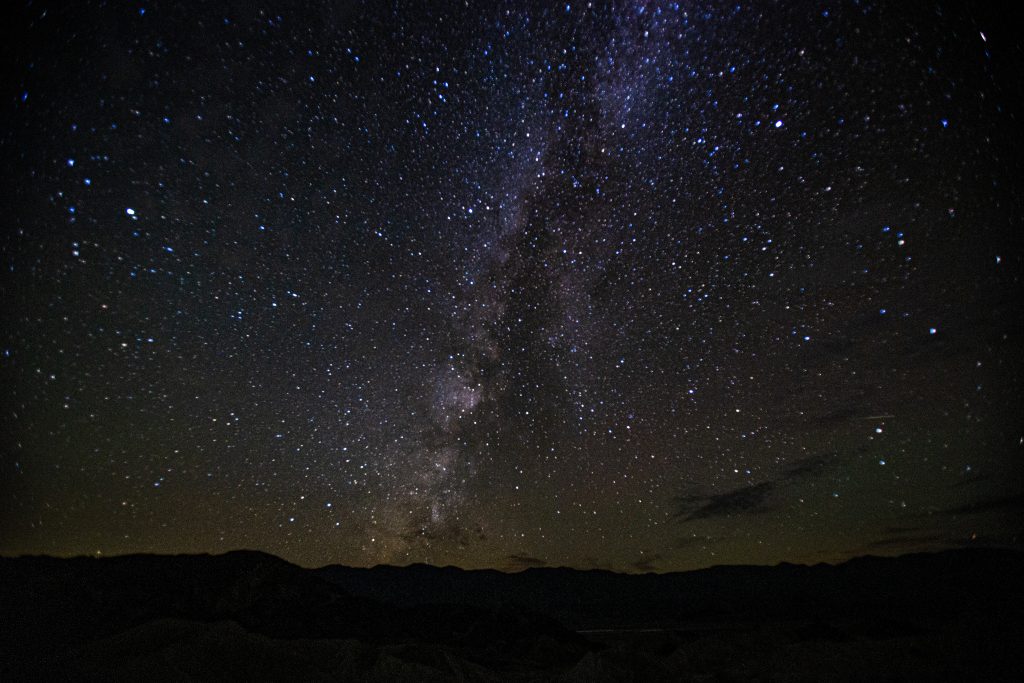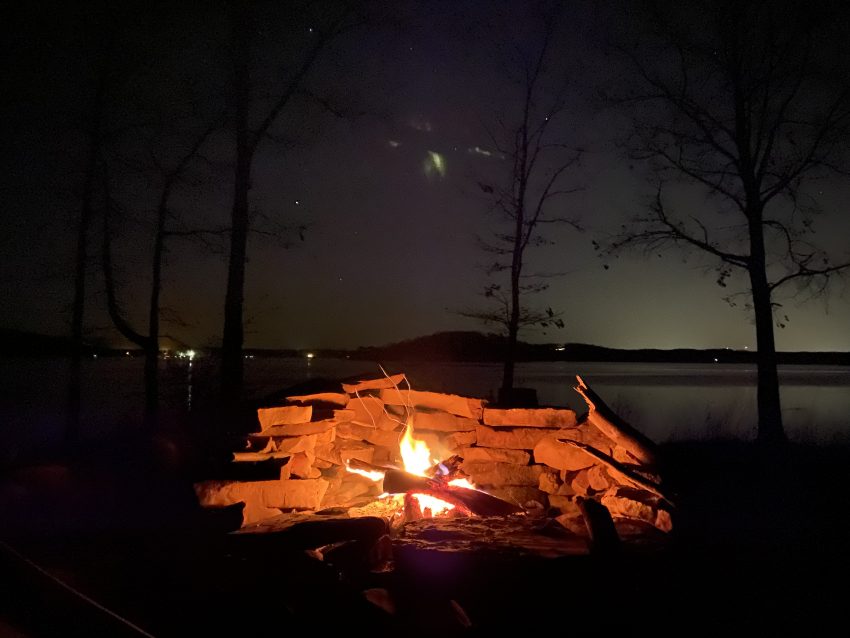The Fear of the Dark and its Impact on Camping
Camping can be a fun, adventurous activity for people of all ages. However, for those who are afraid of the dark, it can be a daunting experience. The fear of the dark is a common phobia that affects many people and can stem from various reasons such as traumatic experiences or cultural beliefs. I personally don’t like not knowing if something is there or not and I can’t see it.
This fear can cause anxiety, stress, and even panic attacks during camping trips. When afraid of the dark, camping at night can be particularly frightening because it is unfamiliar territory.
The natural darkness that envelops the campsite may cause an uneasiness that makes it difficult to enjoy the experience fully. The thought of being alone in the wilderness surrounded by unknown sounds and sights may amplify this fear, preventing some individuals from camping altogether.
The Importance of Overcoming Fear to Enjoy Camping
Overcoming fear is important in order to fully enjoy camping as it allows individuals to engage in activities that they otherwise might avoid. Facing one’s fears head-on builds resilience and helps them overcome anxiety and panic attacks associated with camping at night. By taking control over their fear, campers can gain confidence in their ability to handle any situation that arises while out in nature.
Moreover, overcoming this fear leads to a sense of accomplishment which improves self-esteem levels considerably by showing oneself that despite their fears they could push through them to accomplish something great like enjoying camping during nighttime hours. It also provides opportunities for personal growth by challenging oneself mentally and emotionally as well as confronting potential insecurities head-on.
Fear of darkness should not hinder anyone from enjoying all that nature has to offer while camping. Next sections will provide tips on how to overcome this type of fears while still enjoying an amazing trip full with peace and memorable moments!
Preparation
Choose a campsite with ample lighting or bring your own portable lighting options
One of the most important things you can do when camping if you are afraid of the dark is to choose a campsite with ample lighting. Look for campsites that have well-lit paths, bathrooms, and other common areas. This will help ease your anxiety and make it easier for you to venture outside after dark.
If you cannot find a campsite with sufficient lighting, consider bringing your own portable lighting options such as lanterns or flashlights. When choosing lighting options, look for ones that are easy to use and transport.
Lanterns can be hung from tent poles or trees while flashlights can be carried in pockets or attached to belts. Consider bringing extra batteries or charging devices as well so that you do not run out of power during your trip.
Familiarize yourself with the campsite layout during daylight hours
Before setting up your tent, take some time to familiarize yourself with the layout of the campsite during daylight hours. Walk around the site and note where amenities such as bathrooms, water sources, and trash cans are located.
This will help reduce anxiety once night falls since you will already know where everything is located. Knowing how far away things are from your tent can also help you prepare in terms of what items need to be packed in easily accessible locations versus items that may not be needed until morning.
Bring comfort items such as a favorite blanket or pillow to ease anxiety
Bringing along comfort items such as a favorite blanket or pillow can go a long way towards easing anxiety when camping if you are afraid of the dark. Having something familiar from home can provide much-needed comfort and security during an unfamiliar experience. Consider packing these items in waterproof bags in case of rain or moisture.
Also, keep in mind that while comfort items can be helpful, they should not take up too much space in your pack or tent. Find a balance between packing enough to ease anxiety while still leaving room for other important items such as food, water, and clothing.
Activities to Keep Busy After Sunset
Camping during the day can be a lot of fun, but for those afraid of the dark, nighttime can be a daunting experience. However, just because it’s dark outside doesn’t mean the fun has to stop.
There are plenty of activities that can be done after sunset that don’t involve wandering around in the dark. Here are some ideas to consider when planning your camping trip:
Stargazing: A Cosmic Delight

One activity you can do after sunset is stargazing. If you’re camping in an area with clear skies and minimal light pollution, stargazing can be an incredible experience.
Bring a blanket or camp chair outside and lay back to enjoy the stars above. You may even see shooting stars or satellites passing overhead.
If you want to take your stargazing experience up a notch, consider bringing along a telescope or binoculars so you can get an up-close look at celestial objects like planets and galaxies. Be sure to pack warm clothes as it can get chilly at night when viewing the stars.
Board Games: A Classic Camping Tradition
Another fun activity for after sunset is playing board games by lantern light. Board games are a classic camping tradition and offer hours of entertainment for all ages.
When choosing which games to bring on your trip, consider bringing ones that don’t have pieces that could easily get lost in the dark (like Monopoly). Games like Bananagrams, Scrabble or Yahtzee all have small pieces that are easy to keep track of while still offering enough variety for multiple rounds of play.
Reading & Writing: A Chance To Relax
If you’d rather wind down before bed than engage in active play or entertainment, consider bringing a good book or journal with you on your camping trip. Reading is an excellent way to relax and unwind after a day of hiking or exploring, and writing in a journal can help you process any emotions or experiences you may have had during the day. If you bring a book, consider reading by lantern light or the light of your campfire.
Journals can be written in anywhere, but many people find it helpful to write under the stars as they feel a sense of connection with nature. Regardless of what activity you choose, remember that just because it’s dark doesn’t mean the fun has to stop.
Sleeping Arrangements
Choose a Tent with Mesh Windows for Added Visibility and Ventilation
When it comes to sleeping arrangements, it’s important to choose a tent that will provide you with the most comfortable and secure environment possible. One key feature to look for in a tent is mesh windows. These windows will not only allow for added visibility but can also help with ventilation, keeping the inside of the tent cool on warm nights.
Additionally, if you’re afraid of the dark, having mesh windows can be comforting as they allow you to see outside without fully exposing yourself to the darkness. When selecting a tent, consider the size and style carefully.
Opting for a larger tent may seem like a good idea so that you have more space; however, larger tents can often be harder to set up and take down. Additionally, choosing a dome-style or cabin-style tent may make more sense than choosing one with multiple rooms as this type of structure will provide more stability in windy conditions.
Bring Earplugs or Noise-Cancelling Headphones to Block Out Unfamiliar Sounds
Along with visual disturbances when camping in the dark, unfamiliar sounds can cause anxiety and add another level of discomfort throughout the night. To help combat this issue, bringing earplugs or noise-cancelling headphones can be helpful in blocking out unwanted noise pollution.
Earplugs come in various sizes and styles but are typically made from soft foam or silicone material that molds itself comfortably into your ear canal. Some options even include noise reduction ratings (NRR) which measures how well they block out sounds.
Noise-cancelling headphones work differently by actively reducing background noises instead of just blocking them out completely. These headphones use tiny microphones that “listen” to external noises then produce an opposite sound wave which cancels out any unwanted sounds before they reach your ears.
While there are many noises that come from the woods after dark. Try to become acquainted with those noises. Consider how a coyote, owl, or squirrel sounds and try to identify those sounds. Make it a contest to see how many of those animals you can identify and not be terrified of.
Coping Mechanisms
For individuals who experience severe anxiety related to the dark, coping mechanisms can be incredibly helpful in managing this fear while camping. Two effective methods of managing anxiety include deep breathing exercises and meditation. Before bed or whenever you feel overwhelmed by your fear, take a few moments to sit in a comfortable position and inhale deeply through your nose, hold for several seconds, and exhale slowly through your mouth.
This process can help to decrease heart rate and promote relaxation. Meditation practices such as mindfulness or progressive muscle relaxation can also be useful in reducing anxiety before bed.
These practices involve focusing on the present moment and relaxing each muscle group systematically. Another effective way of coping with the fear of the dark is by bringing a trusted companion who can provide comfort and support during the camping trip.
Having someone else present can help to ease feelings of loneliness or isolation that may contribute to feelings of anxiety at night. Additionally, having someone else present who is not afraid of the dark may help alleviate some fears by providing reassurance that there is nothing to be afraid of.
A Trusted Companion
Bringing a friend or family member along on your camping trip can provide both emotional support and practical assistance when dealing with a fear of the dark while camping. A companion who is willing to listen empathetically without judgment can make all the difference in how you experience camping at night.
In addition to providing emotional support, having someone else along on your camping trip provides practical benefits such as being able to share tent space or take turns staying awake throughout the night if needed. If you plan on bringing a companion along for support, consider discussing beforehand what accommodations they will need in order to feel safe and comfortable themselves so that everyone enjoys their time spent outdoors.
Fear of the dark can be a significant obstacle to enjoying camping trips. However, with proper preparation and coping mechanisms in place, anyone can overcome this fear and enjoy all the wonders that nature has to offer after dark. It is important to note that it may take time and practice to fully conquer this fear, but the rewards of being able to camp comfortably after dark are well worth the effort.
